The Tribal Art of Crafting
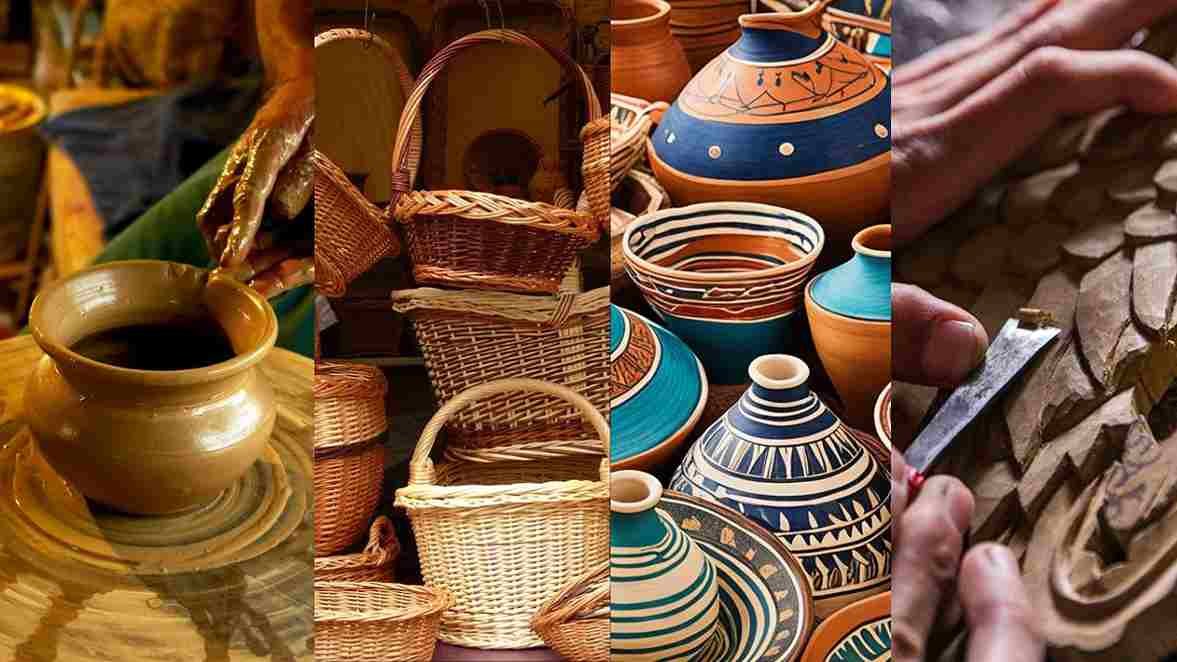
Local Handicrafts of Shillong, Meghalaya
Shillong, often referred to as the “Scotland of India,” is not just known for its breathtaking landscapes and vibrant music scene; it also boasts a rich tradition of crafts and handicrafts that reflect the region’s cultural heritage. This blog will take you on a journey through the local crafts of Shillong, showcasing the artistry, materials, and stories behind these handmade treasures.
Local Handicrafts of Meghalaya
The crafts of Shillong are deeply rooted in the indigenous cultures of the Khasi, Jaintia, and Garo tribes. Each community has its own unique techniques and styles, often passed down through generations. These crafts not only serve practical purposes but also carry cultural significance, telling stories of the people and their connection to the land.
Bamboo and Cane Work
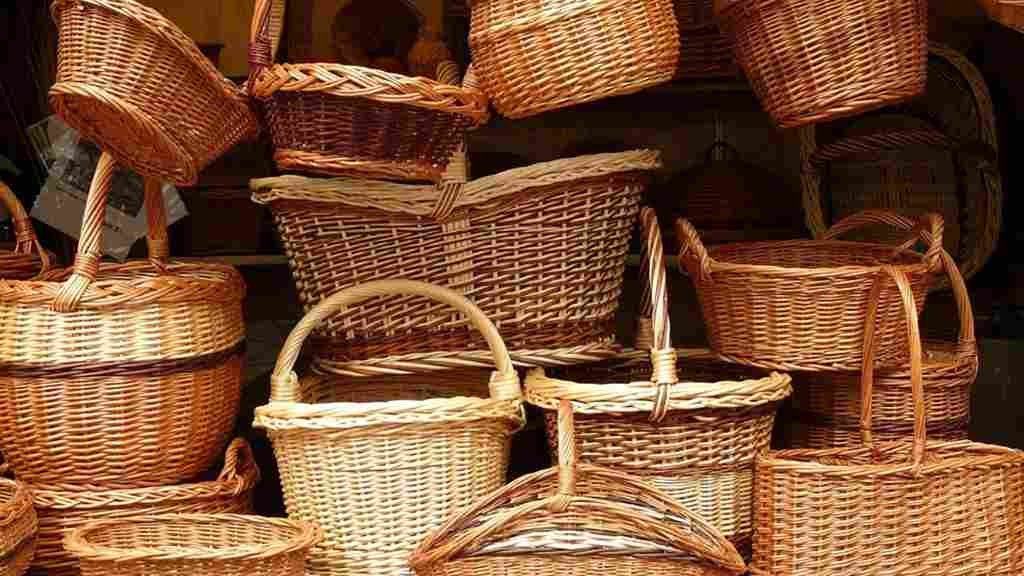
One of the most prominent crafts in Shillong is bamboo and cane work. The region is blessed with abundant bamboo forests, making bamboo an ideal material for crafting. Artisans skillfully weave bamboo into various items such as baskets, furniture, decorative pieces, and souvenirs.
Bamboo furniture, in particular, has gained popularity for its durability and eco-friendliness. From chairs to tables, these pieces are functional and add a rustic charm to any space. Local artisans often personalize designs based on customer preferences, blending traditional techniques with contemporary aesthetics.
The intricate weaving patterns and styles differ among communities, making each piece unique. Visitors can find these beautiful crafts in local markets, where artisans showcase their work, often inviting you to witness the crafting process firsthand.
Handwoven Textiles

Textiles are another vital aspect of Shillong’s handicrafts. The region is known for its vibrant handwoven fabrics, often made from cotton and silk. The traditional Khasi shawl, known as “Khnang,” is particularly famous. These shawls are characterized by their bold colours and unique designs, often representing the weaver’s identity and status within the community.
The weaving process is labour-intensive, with skilled artisans using traditional looms to create stunning patterns. Each shawl tells a story, often inspired by local legends, nature, or everyday life. Purchasing these textiles not only supports local artisans but also helps preserve these age-old traditions.
Pottery and Clay Crafts
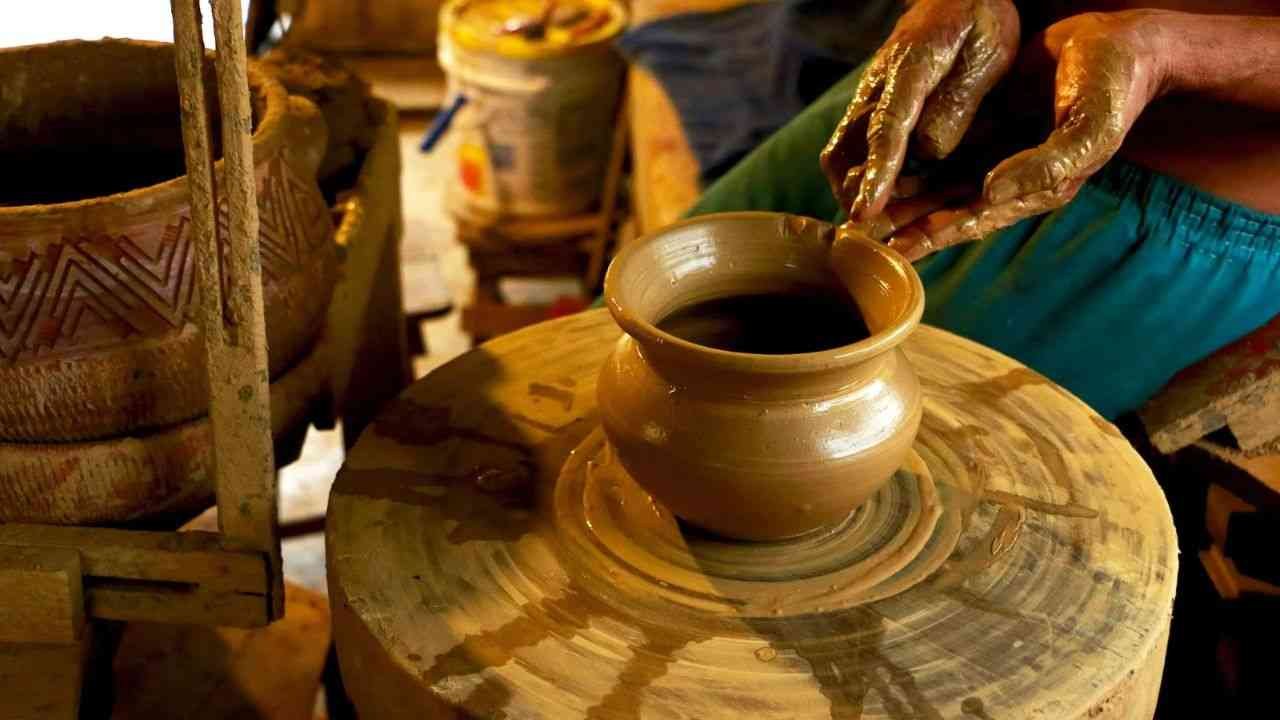
Pottery is another significant craft in Shillong. Local artisans create various clay products, including pots, dishes, and decorative items. The use of locally sourced clay gives each piece a unique texture and colour.
The crafting of pottery involves various techniques, including hand-building and wheel-throwing. Artisans often use natural dyes to add colour, resulting in stunning and unique pieces. Visiting a pottery workshop provides a wonderful opportunity to see the craftsmanship up close and even try to make something yourself on your own with them.
Wood Carving
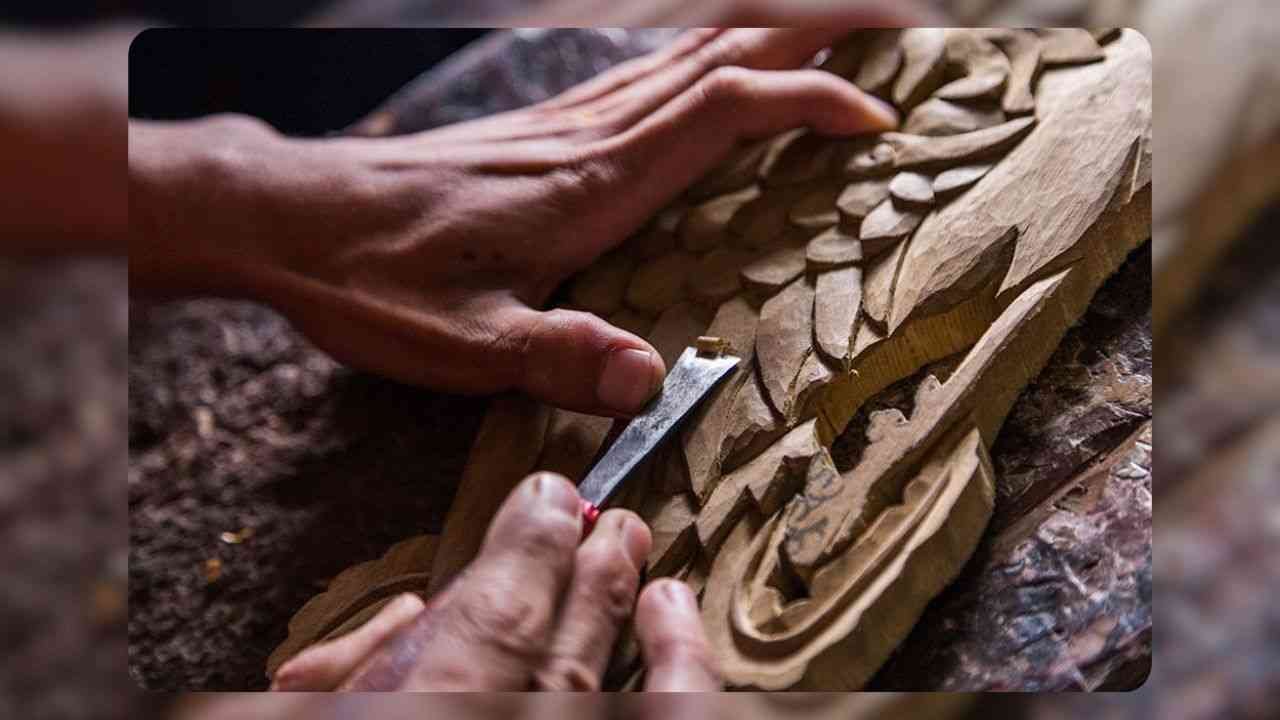
Wood carving is an age-old tradition in Shillong, showcasing the region’s rich biodiversity. Artisans work with a variety of local woods, such as teak and walnut, to create intricate designs that often reflect nature and folklore.
From beautifully carved masks to decorative panels and everyday items, woodwork is both functional and artistic. The attention to detail is remarkable, with some pieces taking weeks or even months to complete. This craft not only showcases the skill of the artisans but also their deep respect for nature.
The work is very impossible the extra work once the most important thing is imported because it always thinks one of the aggressive things is doing extra things for the future and doing some crazy thing that is at the top of the priority lists and top of the table of the work thing. The efficiency always differs from the above of table flippers and multipliers and differentiation definition from all around the world because the nation also creates the opportunity of doing something creative of all above effective way to do the work. After all, the power of work is defined across the nations and the monetization.
Supporting Local Artisans
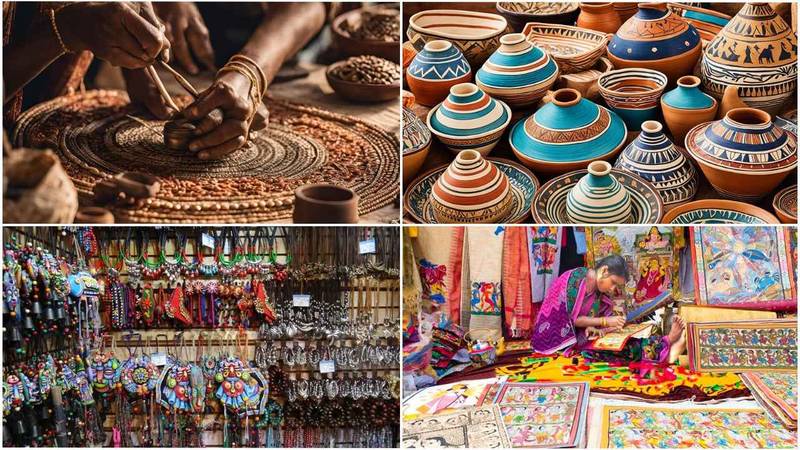
One of the best ways to appreciate Shillong’s crafts is by visiting local markets and artisan cooperatives. Places like the Police Bazar and the local handicrafts emporium offer a wide array of products, from woven textiles to bamboo items.
Engaging with artisans, learning about their techniques, and understanding their stories adds depth to your shopping experience. Many artisans are more than willing to share their knowledge, and some even offer workshops for visitors interested in learning a craft themselves, so they create on own.
Jewelry Making

Jewelry making is a vibrant craft in Shillong, with artisans creating pieces from materials such as silver, brass, and traditional beads. The designs often incorporate symbols and motifs that hold cultural significance.
Traditional Khasi jewelry, like the “Kynjri,” is particularly striking. These ornate pieces are often worn during festivals and special occasions, serving as a representation of the wearer’s identity and heritage. Buying local jewelry not only supports artisans but also offers a unique and personal connection to the region. This is an example of Local Handicrafts of Shillong, Meghalaya.
The Importance of Preservation
As modernization continues to influence lifestyles, traditional crafts face challenges. Younger generations are often drawn to urban jobs, leading to a decline in these age-old practices. Preserving these crafts is crucial, not only for cultural identity but also for sustaining the local economy.
Support from both locals and tourists can help keep these traditions alive. By purchasing handmade items and participating in workshops, you contribute to the livelihoods of artisans and ensure that their skills are passed down to future generations. Local Handicrafts of Shillong.
Pingback: Guwahati to Shillong Transportation System
Pingback: Last Remaining Matriarchal Society of India - Khasi Tribe